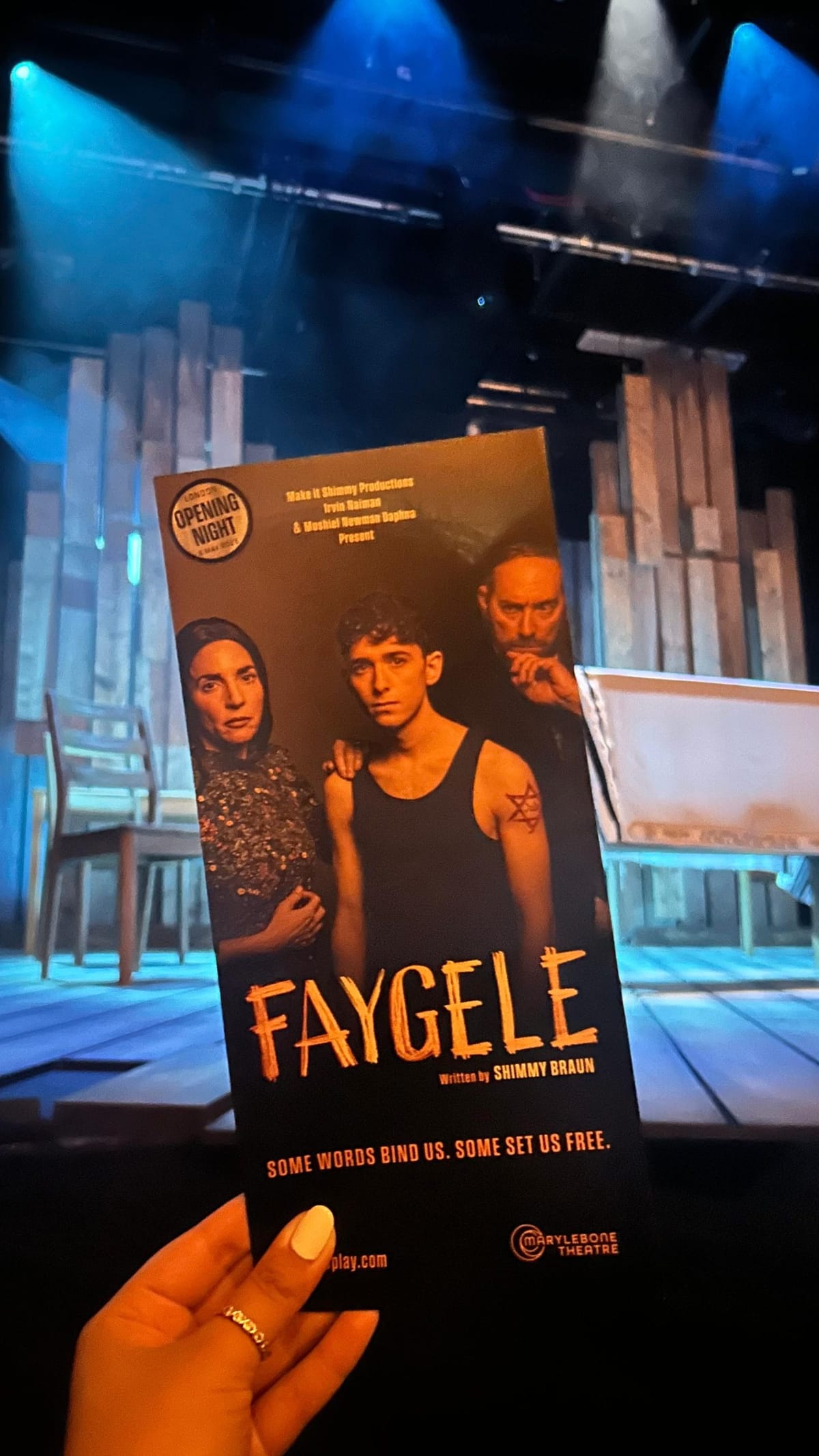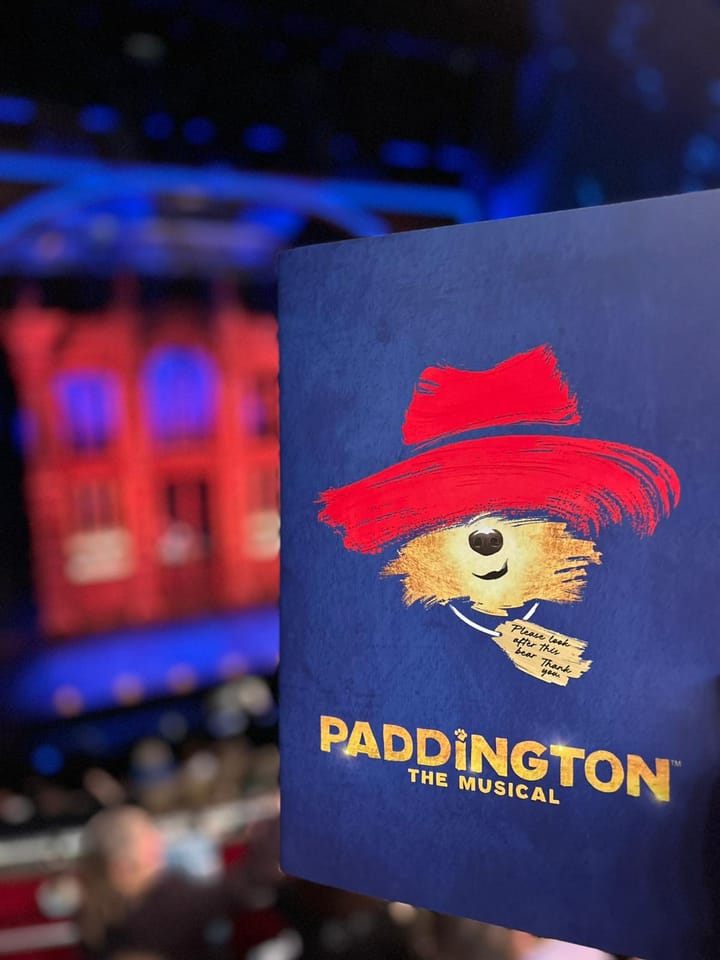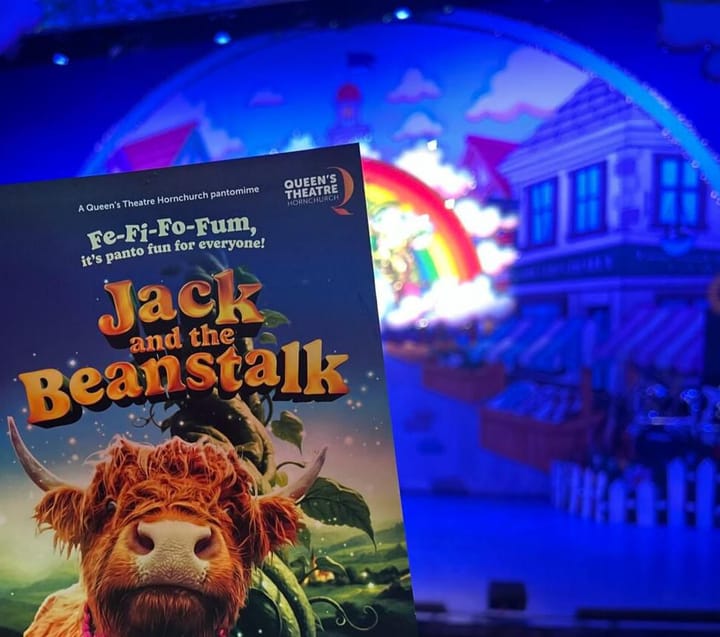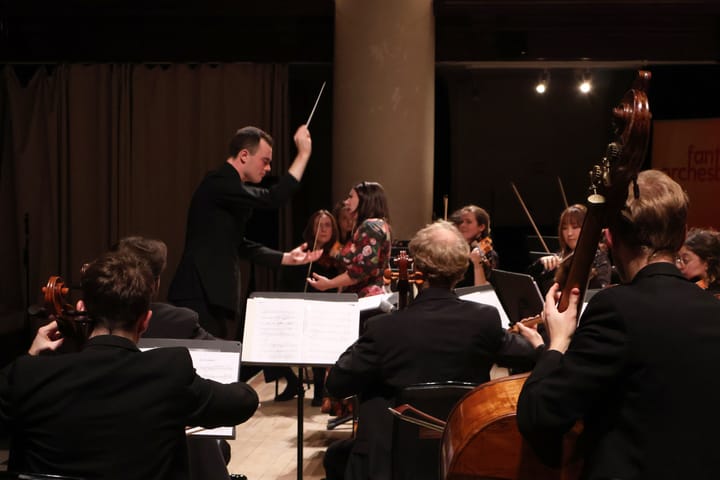Faygele at Marylebone Theatre - Review

By Jude
With heartbreaking tenderness, Faygele confronts the devastating consequences of being unloved for who you are—now playing at the Marylebone Theatre.
The story follows Ari Freed (Ilan Galkoff), who immediately breaks the fourth wall to inform the audience they’re about to witness a tragedy. At just 18 years old, Ari has taken his own life—and his ghost now watches over his funeral. His devastated mother, Mrs. Freed (Clara Francis), mourns; his stern father, Dr. Freed (Ben Caplan), expresses relief; Rabbi Lev (Andrew Paul) presides over the service; and the sudden appearance of the mysterious Sammy (Yiftach Mizrahi) causes a stir. Ari takes the audience through a series of flashbacks, beginning with his bar mitzvah at 13, to trace the painful path that led him here. At the heart of it all is his family’s inability to accept his sexuality—frequently referring to him as “faygele,” a Yiddish slur for a gay man.
It’s a deeply emotional and resonant story, especially for those navigating questions of identity, belonging, and acceptance. The play doesn’t flinch from confronting painful truths.
Ilan Galkoff is utterly charming and charismatic as Ari. His ability to connect—flirt even—with both the audience and fellow characters adds a spark of joy to an otherwise heavy narrative. Yet, he also delves into the darkness of Ari’s psyche with ease. Andrew Paul is a standout as the warm-hearted Rabbi Lev, a near father figure for whom the audience roots to be Ari’s savior. Yiftach Mizrahi brings real power and compassion to his later entrance as Sammy, commanding the stage with vigor. Ben Caplan perfectly embodies the hard-hearted, stubborn father that the audience loves to hate, but also reveals a lighter, more playful side in a particular section of the play. Similarly, Clara Francis delivers a poignant performance as the mother trapped in a marriage that stifles her ability to love her child for who he is, while also displaying a beautiful, tender singing voice that adds vulnerability to her character.
David Shield’s set design is simple but effective: wooden planks flip to create context, while furniture pieces shape each scene. This minimalist approach lets the acting and storytelling shine. The cast also doubles as crew, rearranging the set between scenes. While often efficient, a few transitions feel clunky and momentarily disrupt the flow—a touch more polish would maintain the emotional momentum.
Writer Shimmy Braun showcases beautifully written word in this play. Moments of wit and humor offer welcome relief integrated throughout, providing a much-needed balance in a narrative so heavy. Several of the play's revolutionary speeches—particularly those exploring religion and sexuality—are beautifully written and provoke deep reflection. These moments, in particular, stand out for their eloquence and power, offering insight into the characters' struggles and the larger societal issues they represent. While it’s powerful to see this kind of Jewish and queer representation on stage, the play presents a largely critical view of religion. That singular perspective risks overlooking the nuance and complexity many experience within faith communities.. A surreal pantomime-style sequence—“The Turkey Prince”—marks a stark tonal shift near the end. Initially jarring, it ultimately serves as a whimsical pause before the final emotional gut-punch. By revealing the ending upfront, the circular narrative not only removes any anticipation or hope but also risks undermining the story's emotional impact. The play might have been more gripping had it allowed the audience to experience the journey without knowing how it would all end. However, the emotional depth and sharp characterization keep the story compelling despite this.
Still, Faygele is a story that reminds us of a fundamental human truth: we all want to love and be loved—but sometimes, we fail one another in that pursuit. Catch it until the 31st of May.
⭐⭐⭐⭐




Comments ()